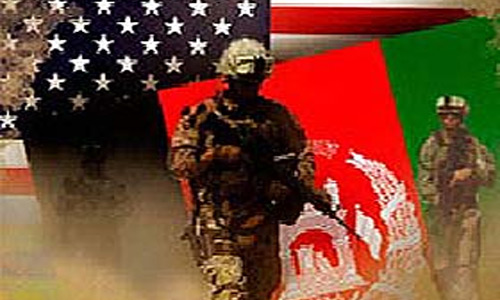Osama’s death came after nearly a decade of the US-led war on terror. President Barack Obama in an address to the nation said, ‘For over two decades Bin Laden has been Al-Qaeda’s leader and symbol, and has continued to plot attacks against our country and our friends and allies. The death of Osama marked the most significant achievement to date in the US effort to defeat the Al-Qaeda. With caution he added, ‘Yet his death does not mark the end of our effort. There is no doubt that the Al-Qaeda will continue to pursue attacks against us. We must and we will remain vigilant at home and abroad.’ Obama also took the opportunity to emphasise that his country would never be at war with Islam, and also that Pakistan’s counter–terrorism cooperation had been important in the operation. Bin Laden was not a Muslim leader; he was a mass murderer of Muslims. Indeed the Al-Qaeda had slaughtered scores of Muslims in many countries.
A welcome move with caution
The elimination of Osama bin Laden, the leader of a global terror network, by the US forces was welcomed by all countries of the world. With his death Indian Prime Minister Manmohan Singh hoped that it would strengthen the hands of those forces in Pakistan who want the state to shut the door on militancy, extremism and terrorism once and for all. The Kremlin press service also welcomed “serious success” of the US in the fight against international terrorism and called for stepping up joint coordinated battle against this evil. The Russian Foreign Ministry said the US blow to Al-Qaeda had universal significance showing that terrorism is doomed and retribution strikes terrorist sooner or later. But in the death of Bin Laden Moscow saw a wider US game plan behind the liquidation of Al-Qaeda leader and was deeply concerned about US further strategies in Afghanistan and Central Asia. Russia considered the death of the leader as the result of a deal between American and Pakistan intelligence that would pave the way for a power sharing arrangement with the Taliban and should facilitate US withdrawal from Afghanistan. The Kremlin expressed its worry about US interests in Central Asia. Sergei Chekinov, head of the Centre for Military Strategy Research of the Russian General Staff, said, ‘The West seeks wider excess to energy resources in Central Asia and a foothold to advance its interests beyond the region.’ He also called for strengthening the Collective Security Treaty Organisation (CSTO). Chekinov apprehended that the killing of Bin Laden may strengthen the hand of a rising interventionist lobby in the While House and Russia viewed it as a dangerous tendency.
After effects of Laden’s death
In post-Bin Laden period the United States of America got an opportunity to start a new beginning in Afghanistan. From this point onward President Barack Obama needs to rethink the war in Afghanistan. If the ultimate objective is to talk to moderate Taliban in order to negotiate an end to this war, there is no justification for further military operations in that country, and no execuse for delaying the departure of the US and foreign troops. Exactly the Obama Administration has moved forward in this direction a ground was prepared for talks between the US and the Taliban in June 2011. The Afghan President Hamid Karzai and Robert Gates, the US Defence Secretary had confirmed that preliminary facts are under way.
As an important step forward in this direction the UN Security Councils’ sanctions list has been divided so as to separate Taliban leaders from those of Al-Qaeda. The US Defence Secretary in a television interview on 19 June 2011 declared, ‘We have said all along that a political outcome is the way most wars end. The question is when and if they (the Taliban) are ready to talk seriously’. He also argued further that US pressure was needed on the Taliban, ‘Talks yes, but not yet has long been the Pentagon position. At the juncture Hamid Karzai, the Afghan President, is in difficult situation. Like the Taliban, he wants to end his country’s occupation though he is not sure how to do it, given the countervailing pressures from the insurgency and the Americans as well. In fact any long-term bases or talks for withdrawal under the guise of a strategic partnership would not only affect the serious negotiations to end the war but would also undermine the prospect for any regional agreement between Afghanistan and its neighbours.
Analysis of Obama’s overall policy
In the circumstances President Barack Obama’s announcement came regarding the drawdown of troops in Afghanistan. Several answers were put forward to the question why he took such a decision. Put simply, his sharp political instincts prevailed. He had a pledge of redeem; he sensed the public mood; he heard “bipartisan” opinion in Capital Hill that the soldiers be brought home; he faces an adverse budgetary environment and he understood that his priority should be to mend the US economy rather than wage wars in foreign lands. Meanwhile Afghan opinion was also turning against foreign occupation and the killing of Osama bin Laden offered a defining moment. On diplomatic front too regional allies proved exasperatingly difficult, while European allies got impatient to quit. The regional opinion militates against a long-term US military presence, while the contradictions in intra-regional relationships do not easily lend to negotiations. The Taliban responded to Obama’s announcement saying, ‘The solution for Afghan crisis lies in the full withdrawal of all foreign troops immediately. Until this happens, our armed struggle will increase from day to day. Unlike his predecessor George William Bush who once said that US would someday consider a Marshall Plan for Afghanistan, Obama pleaded that this is a time of rising debt and hard economic times at home and he needs to concentrate on rebuilding America.
Home » Opinion » Ultimate breakthrough in US attitude towards Afghanistan
Ultimate breakthrough in US attitude towards Afghanistan
| Rajkumar Singh

